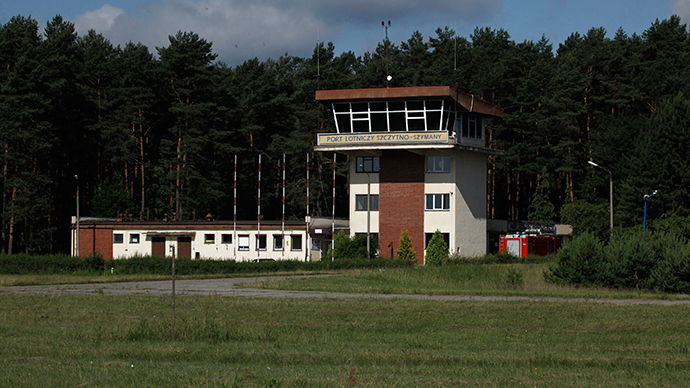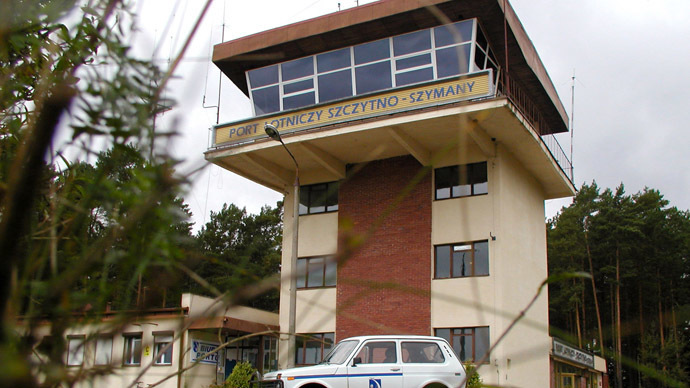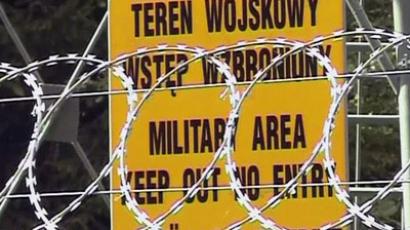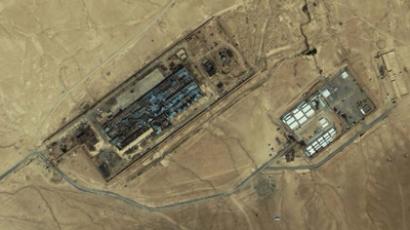European rights court condemns Poland for hosting secret CIA prisons

The European Court of Human Rights (ECtHR) has ruled that Poland violated an international treaty to protect human rights by hosting secret CIA prisons on its territory.
The Strasbourg-based court ruled that Poland had contravened articles of the European Convention on Human Rights (ECHR) that cover torture, the right to liberty, and the right to an effective remedy for victims of crime.
The case was filed by two men, Saudi-born Abu Zubaydah, and Saudi national Abd al-Rahim al-Nashiri, who charge they were taken to a secret CIA black site in a Polish forest and subjected to treatment which amounted to torture. The men said at a hearing in December they had been brought to Poland in December 2002 with the knowledge of the Polish authorities. Both are now detainees at the US-run Guantanamo Bay prison camp in Cuba.
The US government accused Zubaydah of running a terror training camp Afghanistan which was attended by some of the September 11 hijackers. Al-Nashiri, originally from Yemen, was accused of directing an attack on the US. warship Cole in the Yemeni port of Aden in 2000 that killed 17 sailors.
Regarding al-Nashir, the court said Poland had "enabled the CIA to transfer him from Poland to other CIA-run detention facilities, despite a real risk of his being subjected to further torture, ill‑treatment, incommunicado detention, the imposition of the death penalty and flagrantly unfair trial."
Poland was further found to have violated Articles 3 and 13 of the ECHR by failing to conduct an effective and thorough investigation regarding allegations of "serious violations" of al-Nashir's rights being carried out on Polish territory. The court also said the Polish government had failed to produce information and documentary evidence requested in the Zubaydah case.
Poland was ordered to pay al-Nashiri 100,000 euros in damages and 130,000 euros to Zubaydah.

Amrit Singh, a lawyer with the Open Society Justice Initiative who acted for one of the men who brought the case, told Reuters the court's ruling established beyond reasonable doubt that Poland-hosted a secret jail run by the US government.
"It's an historic ruling," she said. "It's time for them to own up to the truth."
Poland's Foreign Ministry said it could not immediately comment because its legal experts still needed to examine the 400-page ruling. Ministry spokesman Marcin Wojciechowski said the court ruling had come too soon, arguing it had not given Polish prosecutors time to finish their own investigation into the alleged CIA gail. That investigation has been running since March 2008.
But presidential spokeswoman Joanna Trzaska-Wieczorek said the ECtHR ruling was a black mark on Poland's reputation.
"The ruling of the tribunal in Strasbourg on CIA jails is embarrassing for Poland and is a burden both in terms of our country's finances as well as its image," said Trzaska-Wieczorek.
“The government has done everything possible to protect Poland in these proceedings.” she said. Trzaska-Wieczorek stressed, however, that those who ran the country at the time the program was active should have to answer for their decisions, and not the current administration.
Polish officials have previously denied the existence of a CIA prison on its territory. The United States has acknowledged that it kept Al-Qaeda suspects in facilities outside of US jurisdiction, but has been unwilling to identify the exact locations of those facilities.
Knowledge of the CIA black site was first revealed by Zbigniew Siemiatkowski, the former head of Poland’s intelligence secret service, in April 2012. Siemiatkowski said he had been tasked with establishing a secret prison for the CIA in a remote part of the country. Allegedly, foreign prisoners in the detention center were tortured in connection with America's global war on terror.
According to a report released in February 2013 by the Open Society Justice Initiative (OSJI), at least 54 countries including Syria, Iran, Sweden, Iceland, and UK had offered the CIA “covert support” to detain, transport, interrogate and torture suspects in the years following the 9/11 attacks.
Thursday's ruling could serve as a precedent for other European states alleged to have hosted CIA prisons, as similar cases have been filed with the ECtHR against Romania and Lithuania. The ruling has no bearing on the United States, which is outside of the court's jurisdiction.













